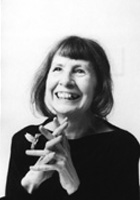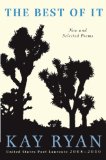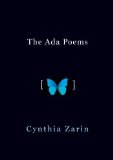Summary | Excerpt | Reviews | Beyond the book | Read-Alikes | Genres & Themes | Author Bio

Here is a treasure of Amy Clampitt's verse, for those who are reading her for the first time, as well as for those who have long admired her.
When Amy Clampitt's first collection, The Kingfisher, was published, it was hailed as that rare first book that "signals a major poet in full bloom" (Los Angeles Times). Its author was sixty-three years old. Over the next eleven years, Clampitt produced four additional, major collections. Now, the most essential poems from these five volumes are gathered together.
Clampitt was an impassioned observer of the natural world, the delights of which color many of these poems: writing of the fog, she described "a stuff so single / it might almost be lifted, / folded over, crawled underneath / or slid between, as nakedness- / caressingsheets." Such was the texture of her language, too. She was a traveler, reporting back from England and Greece, from California and Maine, and from her native Midwest. An Iowa transplant to New York, the descendant of pioneers, she wrote of prairies and subways; of the movements of wildflowers, people, and ideas; and of the widespread modern experience of uprootedness.
Here is a treasure of Amy Clampitt's verse, for those who are reading her for the first time, as well as for those who have long admired her.
Amy Clampitt relished the chance... to reveal the immense power that words have to create the world instead of merely explaining it. Seeing, for Clampitt, encompassed all five senses: her poems, like the flora she loved so much, run rampant with sights, sounds, smells, tastes, and textures, and a rich harvest awaits anyone who delves into this selection of her best work... [she] brought a fresh way of seeing to American verse, and this edition, despite a few shortcomings, abundantly displays the bracing light that her words shone on the surrounding world...continued
Full Review
(797 words)
This review is available to non-members for a limited time. For full access,
become a member today.
(Reviewed by Marnie Colton).
About Amy Clampitt
 Upon publication of her book of poems The Kingfisher in 1983, Amy Clampitt became one of the most highly regarded poets in America. Born in 1920 to Quaker parents and raised on a farm in rural Iowa, she graduated from Grinnell College, and from that time on lived mainly in New York City, later studying at Columbia University and the New School for Social Research. Throughout the 1940s and 1950s, Clampitt worked as a secretary at Oxford University Press, as a librarian at The Audubon Society, and as a freelance editor while she attempted unsuccessfully to write novels. In the 1960s she turned her attention to poetry, and in 1974 she published a small volume of poetry titled Multitudes, Multitudes; thereafter her work ...
Upon publication of her book of poems The Kingfisher in 1983, Amy Clampitt became one of the most highly regarded poets in America. Born in 1920 to Quaker parents and raised on a farm in rural Iowa, she graduated from Grinnell College, and from that time on lived mainly in New York City, later studying at Columbia University and the New School for Social Research. Throughout the 1940s and 1950s, Clampitt worked as a secretary at Oxford University Press, as a librarian at The Audubon Society, and as a freelance editor while she attempted unsuccessfully to write novels. In the 1960s she turned her attention to poetry, and in 1974 she published a small volume of poetry titled Multitudes, Multitudes; thereafter her work ...
This "beyond the book" feature is available to non-members for a limited time. Join today for full access.

If you liked Selected Poems, try these:

by Kay Ryan
Published 2011
A major event in American poetry: The poet’s own selection of more than two hundred poems, offering both longtime followers and new readers a stunning retrospective of her earlier work as well as a generous selection of powerful new poems.

by Cynthia Zarin
Published 2010
A dazzling story of obsessive love emerges in Cynthia Zarin's luminous new book inspired and inhabited by the title character of Nabokov’s novel Ada, or Ardor: A Family Chronicle, who was the lifelong love of her half brother, Van.
When you are growing up there are two institutional places that affect you most powerfully: the church, which ...
Click Here to find out who said this, as well as discovering other famous literary quotes!